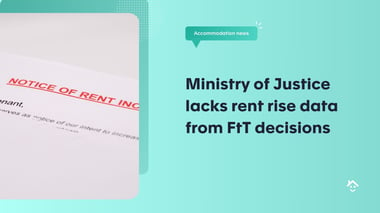The government has unveiled a new consultation that will affect landlords with holiday lets in tourist hotspots because they might need planning permission to operate - and be registered with the local authority.
The Department for Levelling Up, Housing and Communities (DLUHC) says it is looking to introduce a planning permission requirement before a home is turned into a short-term or holiday let in areas where there are already high numbers of holiday properties.
And, for landlords in England, there would be a new registration scheme for any property used as a holiday let.
Landlords in Northern Ireland and Scotland already have a short-term licensing scheme that is in operation, while landlords in Wales have a new statutory licensing scheme being introduced for all visitor accommodation providers.
Consider whether landlords should have the flexibility
The government says that the proposed plans will consider whether landlords should have the flexibility to let their property for a specific number of nights every year without having to apply for planning permission.
Michael Gove, the Levelling Up secretary, says the plan will prevent local people from being pushed out of their areas because of the rising number of short-term lets.
The proposals come after growing fears that tourist hotspots around the country are leading local people to be priced out by second homeowners and with fewer rental properties available there are higher rents.
To highlight the issue, official figures show that in some areas of Cornwall, up to 40% of properties are being used as a second home.
Which homes can be used as a holiday let
The consultation could lead to legislation that would empower local councils to control how many homes - and which homes - can be used as a holiday let under the planning system.
Mr Gove said: "Tourism brings many benefits to our economy but in too many communities we have seen local people pushed out of cherished towns, cities and villages by huge numbers of short-term lets.
"I'm determined that we ensure that more people have access to local homes at affordable prices and that we prioritise families desperate to rent or buy a home of their own close to where they work."
The co-founder of the campaign group First Not Second Homes, Catherine Hayes, welcomed the news as a welcome step to tackle the housing crisis - but is afraid that the process will take a long time to implement.
She added: "We need these kinds of controls in areas where communities are being eroded.
"But I'm hoping it won't take as long as I think it's going to."
‘Standards in the short-term lettings industry’
One organisation that has welcomed the consultation is Propertymark, the representative body of estate and letting agents, which says it has campaigned for the introduction of standards in the short-term lettings industry.
It says that the planned legislation should be easy to understand and comply with.
Propertymark says there are three potential routes that could be implemented:
· A local authority opt-in scheme: This would use a national framework to provide a local authority with a choice of whether to participate in the scheme on the changing needs of its area
· A similar opt-in scheme for local authorities with a review point to determine whether its scheme should become a mandatory system and whether it should cover all of England
· A mandatory national scheme that will deliver a level playing field and provide data so local authorities can determine which premises are being let and help develop a policy to address the impact on community and housing.
Integral part of the UK’s visitor economy
In its proposal, the DLUHC says that short-term lets are an integral part of the UK’s visitor economy, and this includes self-catering accommodation and holiday cottages.
However, they say the sector has significantly changed over the last 15 years with a major expansion in the range and number of accommodation providers.
Also, the growth of digital platforms has boosted the size and shape of the sector and led to an increase in the short-term letting market for residential premises.
While recognising that short-term lets offer an income for homeowners and help to boost local economies with increased visitor spend, there are concerns that the regulatory framework is inconsistent.
Rules will not cover B&Bs and hotels
The new rules will not cover B&Bs and hotels and the consultation follow a call for evidence that led to more than 4,000 responses with strong support from 60% of respondents for a light-touch registration scheme.
Simon Thompson, the managing director of Accommodation for Students, said: “There has been strong growth in the short-term letting sector in recent years with more people wanting this type of accommodation and as landlords leave the private rented sector for more profitable avenues.
“There will be a lot of support for the changing of the planning system to prevent short-term lets from being created and councils will also, undoubtedly, be keen to introduce a registration scheme too.
“Landlords will need to be aware of any developments and to comply with planned legislation.”




